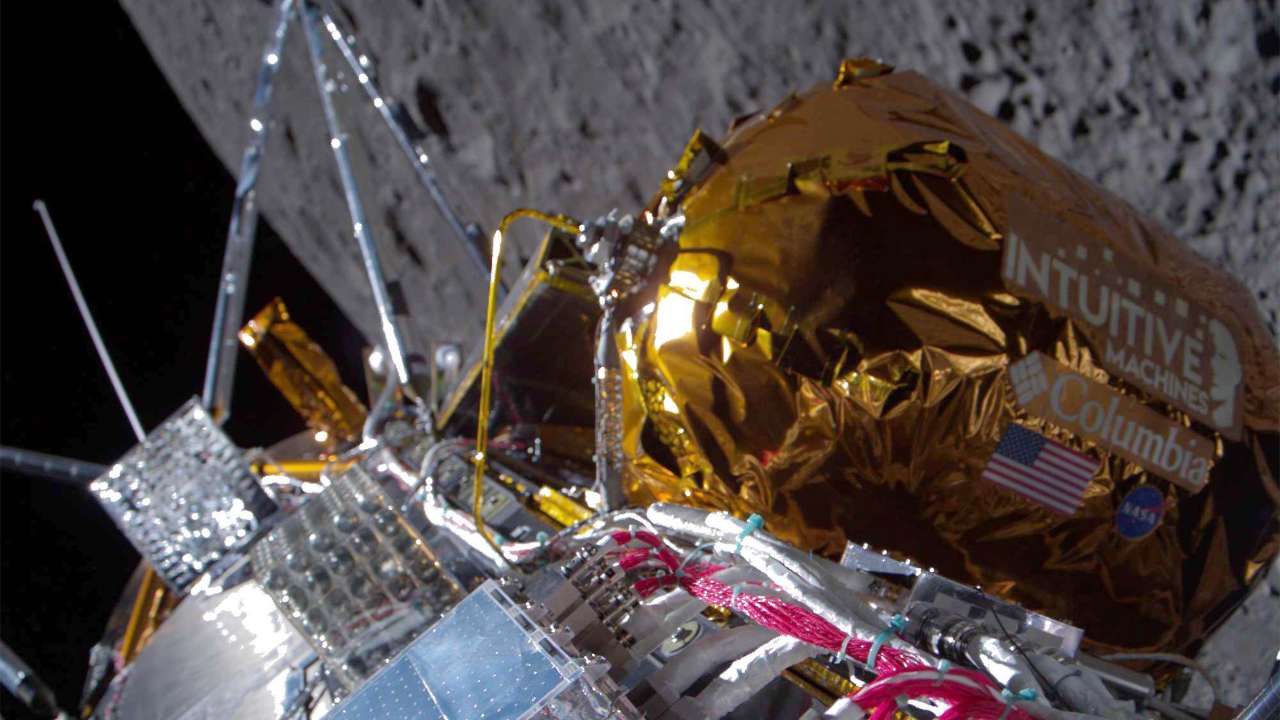The landing has put the US back on the surface for the first time since NASA’s famed Apollo moonwalkers
A private spacecraft has landed on the moon, making it the first US touchdown on the moon in more than 50 years.
Despite the spotty communication, Intuitive Machines, the company that built and managed the lunar lander, confirmed that it had landed upright.
But it did not provide additional details, including whether the lander had reached its intended destination near the moon’s south pole.
“What we can confirm, without a doubt, is our equipment is on the surface of the moon,” mission director Tim Crain reported as tension built in the company’s Houston control center.
Added Intuitive Machines CEO Steve Altemus: “I know this was a nail-biter, but we are on the surface and we are transmitting. Welcome to the moon.”

Data was finally starting to stream in, according to a company announcement two hours after touchdown.
Intuitive Machines “aced the landing of a lifetime,” NASA administrator Bill Nelson tweeted.
The final few hours before touchdown were loaded with extra stress when the lander’s laser navigation system failed.
The company’s flight control team had to press an experimental NASA laser system into action, with the lander taking an extra lap around the moon to allow time for the last-minute switch.
With this change finally in place, the craft, named Odysseus, descended from a moon-skimming orbit and guided itself toward the surface.
The landing put the US back on the surface for the first time since NASA’s famed Apollo moonwalkers.
Japan scored a lunar landing last month, joining earlier triumphs by Russia, US, China and India.
The US bowed out of the lunar landscape in 1972 after NASA’s Apollo program put 12 astronauts on the surface.
Intuitive Machines’ target was 186 miles (300 kilometers) shy of the south pole, around 80 degrees latitude and closer to the pole than any other spacecraft has come.
The site is relatively flat, but surrounded by boulders, hills, cliffs and craters that could hold frozen water, a big part of the allure.
The lander was programmed to pick, in real time, the safest spot near the so-called Malapert A crater.
The solar-powered lander was intended to operate for a week, until the long lunar night.
Follow STV News on WhatsApp
Scan the QR code on your mobile device for all the latest news from around the country




























